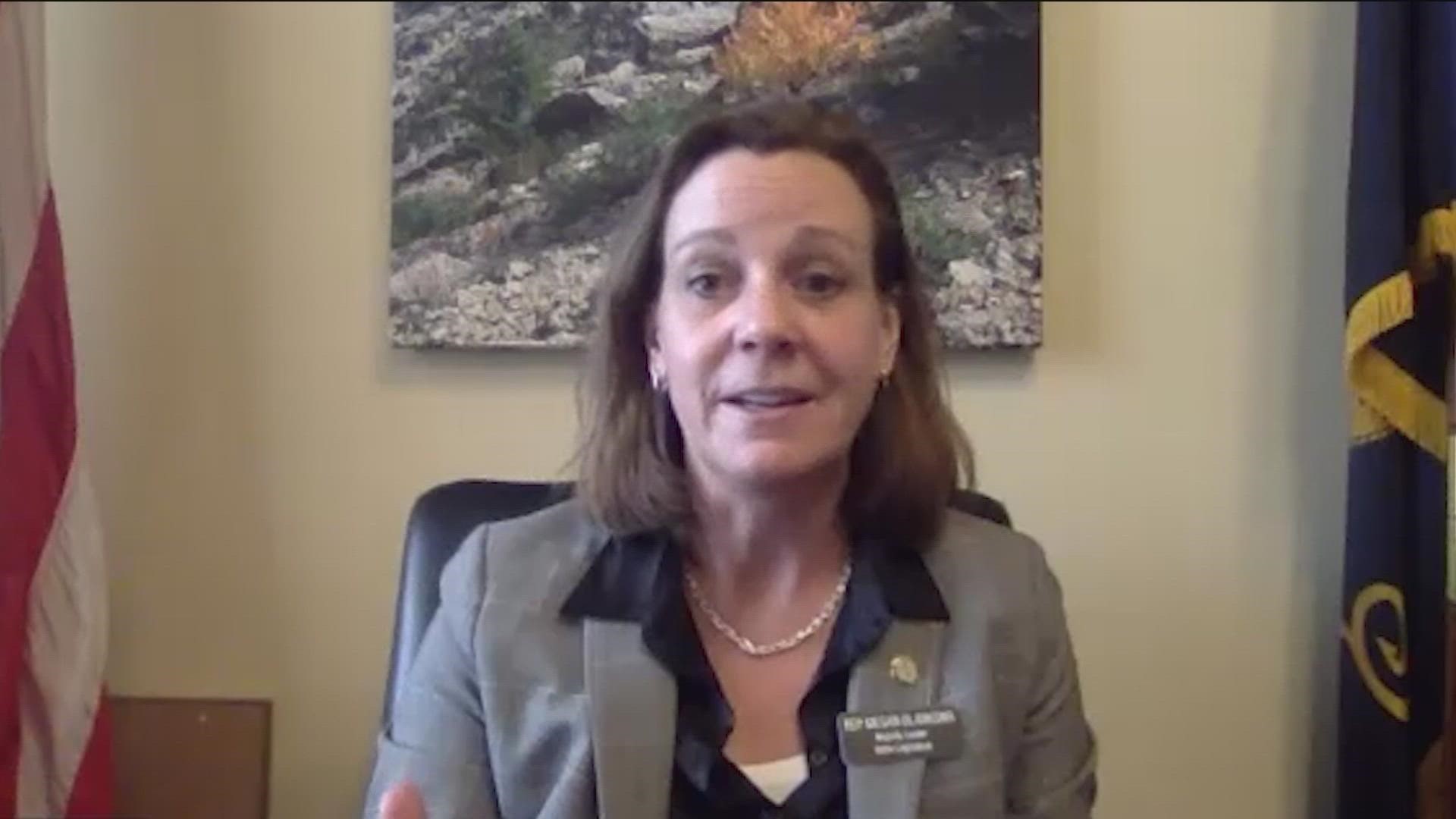BOISE, Idaho — Two weeks after Governor Little's State of the State address, we are getting a first look at one of the biggest ideas from his address: the Idaho Launch Program. It is an idea to send eligible Idaho high school students $8,500 to pursue in-demand careers after high school or for those who have a GED.
The idea drew a lot of attention after the state of the state, with questions about whether it could even work.
A bill on the topic was presented in committee Monday afternoon by House majority leader, Rep. Megan Blanksma, she has worked with the Governor’s office on the legislation.
To be crystal clear up front, this is not a universal scholarship program or a scholarship program at all, and this is a feature that is projected to begin in 2024.
Idaho Launch would include a grant program, meant for targeted investments into the career paths of Idaho students who are looking to get into in-demand careers, or careers that Idaho needs more of.
Maintenance and repair workers, welders, and nurses, are just a few examples.
Idaho Launch is actually a program that already exists, it aims to help graduating high school students to find careers that click for them. Through it, students can get training and experience in the careers Idaho needs.
Rep. Blanksma detailed more about the concept.
"This is a jobs-driven program. This is not, 'I want to learn about art history'. This is what jobs are in demand in the state of Idaho and this is our task for getting people who want those jobs trained for those jobs. There are a lot of jobs out there that you don't need college for, but you do need specialized training and they're in high demand and that's what this is talking about," Blanksma said in an interview Monday.
The new portion of the program sends grants to the tune of $8,500 to eligible students beginning in 2024, if it passes. That funding is through the lens of workforce development, the legislature set aside $80 million just for it during the special session in 2022.
That money is for students that are not really interested in traditional post-secondary education. Instead, maybe they are interested in an apprenticeship, training, or other coursework needed for a specific career.
So, if the idea passes as is, students would use tools on the Idaho launch site to find interests of their own and connect with in-demand careers that are then interested in pursuing. The idea is to get kids thinking about what they may be interested in pursuing specifically rather than just going to college just to go.
Blanksma says the program is for helping students with non-traditional paths get some help with training and skill development.
Some of those in-demand career paths are available through local post-secondary schools, like the college of western Idaho for example, while others are specialized programs.
Rep. Blanksma explained the process of the program and applications are being designed right now.
"The application process is controlled by the Workforce Development Council. They are going to develop an application. So there's a hierarchy of needs on how this works. First of all, you have to have an in-demand career. Next is financial need, so the Workforce Development Council will have to determine how that works because there's no need for a FASFA like you would need if you wanted to go on to one of the higher ED institutions at this point. So there's some development that's going to have to happen over the next year, which is the time that we give the Workforce Development Council to develop a plan," Blanksma said.
Lawmakers want to think of the grants to those students as an investment.
The state invests in students, and the payoff for Idaho is students get into careers that Idaho needs.
A win-win situation, supporters say.
"It is a targeted investment. Not only that, we should have a return on our investment, right? So if we're helping kids get to the jobs that they want by providing some assistance in their training, they're getting into the workforce and then they're paying it back to the state by being part of the workforce. And so you get kids places they want to be in jobs they want to have,” Blanksma said. “It always should have been our goal instead of just simply saying, yeah, everybody should try to go on to college. That's not for everyone and we shouldn't expect it from everyone. It's great for some, but not for all. And so I think this provides a much broader pathway for students in Idaho to get the training they want, the jobs they want," Blanksma said.
The idea is now printed as a bill, that will soon return to committee for a full hearing.
Join 'The 208' conversation:
- Text us at (208) 321-5614
- E-mail us at the208@ktvb.com
- Join our The 208 Facebook group: https://www.facebook.com/groups/the208KTVB/
- Follow us on Twitter: @the208KTVB or tweet #the208 and #SoIdaho
- Follow us on Instagram: @the208KTVB
- Bookmark our landing page: /the-208
- Still reading this list? We're on YouTube, too:

